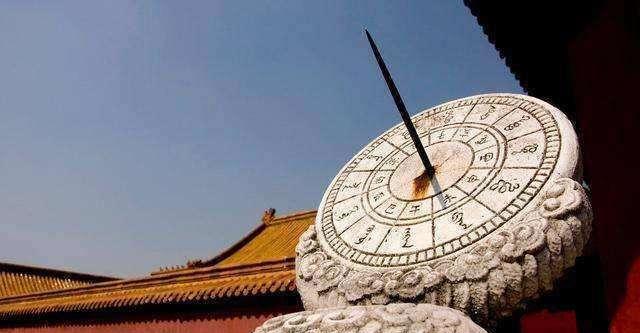After watching some popular historical dramas, I think most viewers will not feel strange to the sentence "asked to be beheaded at three o'clock in the afternoon" shouted out in court when asking for prisoners in the play, right? So, when the ancients beheaded criminals, why did they want to jam the execution time in such an accurate position? On this issue, although there are also historical sources that can explain it, in fact, most of us have been deceived by film and television dramas.

In ancient China, the twelve hours were used as the most basic unit of time measurement, starting from the hour of eleven o'clock in the night and ending at the hour of the next day, each hour is equivalent to two hours of modern man. The time range at noon is roughly between 11:00 a.m. and 1:00 p.m. Influenced by the culture of yin and yang, the ancients regarded noon as a watershed at the junction of yin and yang. Generally speaking, when the yang qi is at its peak in a day, it appears at noon, and then it is three o'clock in the afternoon.
So, as the three o'clock in the afternoon when the yang qi is at its peak, what does it have to do with the execution of prisoners? You know, in the ancient feudal society, people still generally believed that there were gods and ghosts. Generally speaking, after being executed, those who have committed crimes will be punished in the underground government in order to turn into ghosts, but if they are not careful, the criminals after the beheading are likely to turn into lone ghosts and disturb the world.
Therefore, the reason why the ancients chose to ask the question at three o'clock in the afternoon was to suppress the yin qi by means of sufficient yang qi. To put it bluntly, it is to let the most heinous criminals, after being asked to be beheaded, cannot even walk the ghost road and cut off all their thoughts. Of course, choosing to ask for a chop in this time period is also to be able to figure out an auspicious, after all, asking a chop is a relatively obscure thing in the eyes of the ancients.
Correspondingly, if the executioner is not a major criminal, the beheading officer will often order the executioner to ask for the beheading as soon as the noon arrives, the purpose is to let the other party at least have a ghost to do, the next life to invest in a good family, honestly continue to live.
However, not all dynasties have the habit of asking for "three o'clock in the afternoon". According to historical research, only the Ming Dynasty strictly followed this regulation, and as for other dynasties, they also had their own mechanisms for supervision. For example, in the Tang Dynasty, there were no strict requirements for the execution of prisoners in a day, and there was no such thing as asking for a beheading at three o'clock in the afternoon. But despite this, in the days of executing criminals, the Tang Dynasty still attached great importance to it.
For example, every year from the beginning of spring to the day of the autumn equinox, during which criminals cannot be executed, which is the origin of "asking for beheading after autumn". In addition, special dates of each month, such as the day of sacrifice, the emperor's birthday, the Buddhist sutra feast, etc., are also not allowed to ask the prisoner. In the Song Dynasty, there were even cases where criminals could not be executed the next day if the weather did not clear the first night, and if it rained that day, it was not possible to ask the prisoners.
Therefore, many historical film and television works do not completely strictly follow the details in the historical materials to set the plot, which leads to the misunderstanding of most viewers in the process of dissemination. Therefore, the saying that the three o'clock in the afternoon as the standard for asking and beheading prisoners in ancient times was only valued by the imperial court in the Ming Dynasty, and as for other dynasties, there was not so much emphasis and explanation. Including in some historical sources, the execution of prisoners in the early morning or at dusk is not uncommon!
(End)